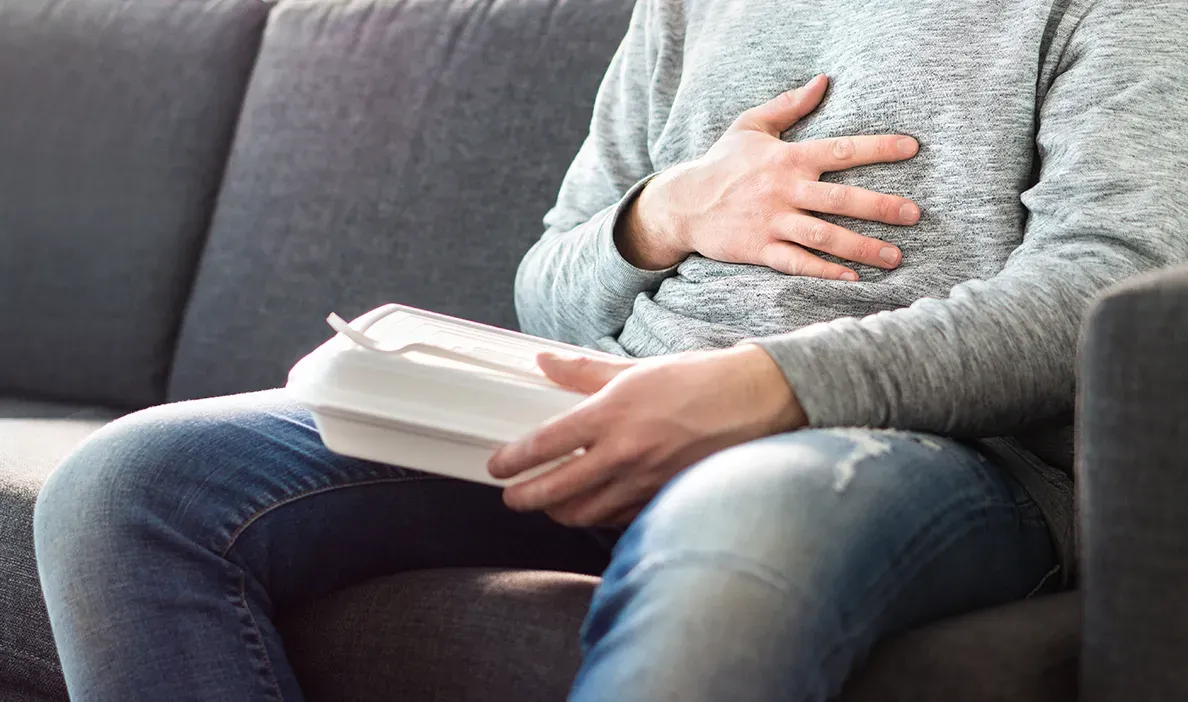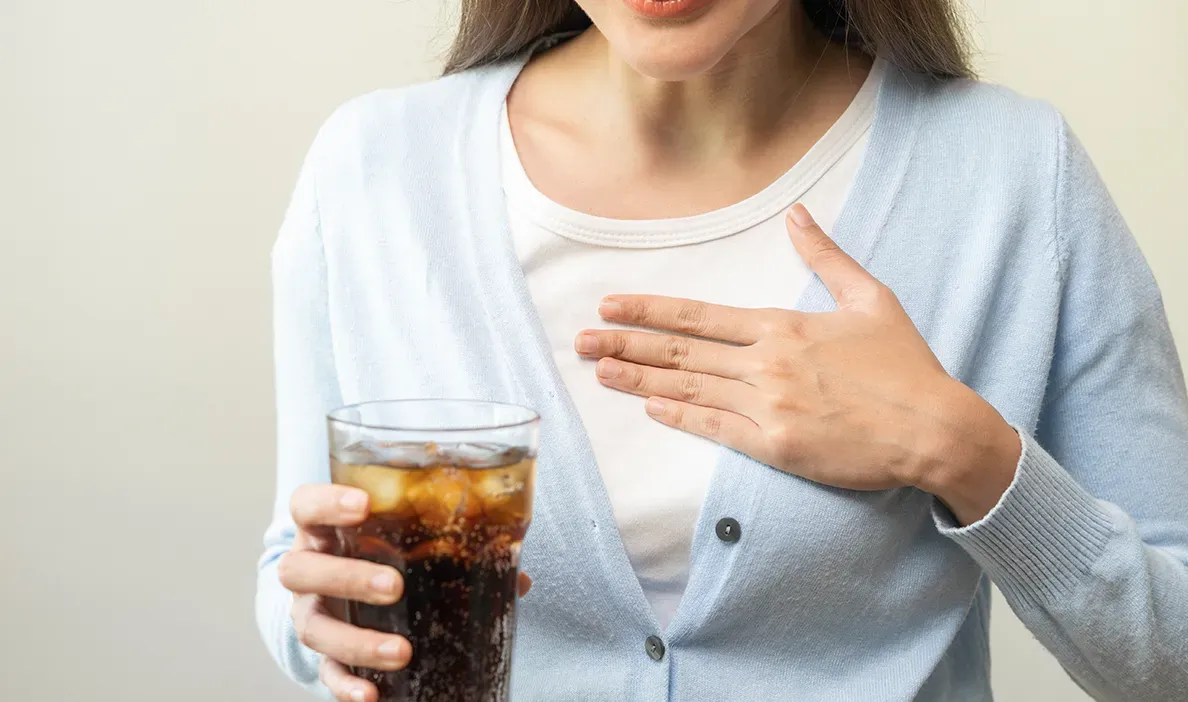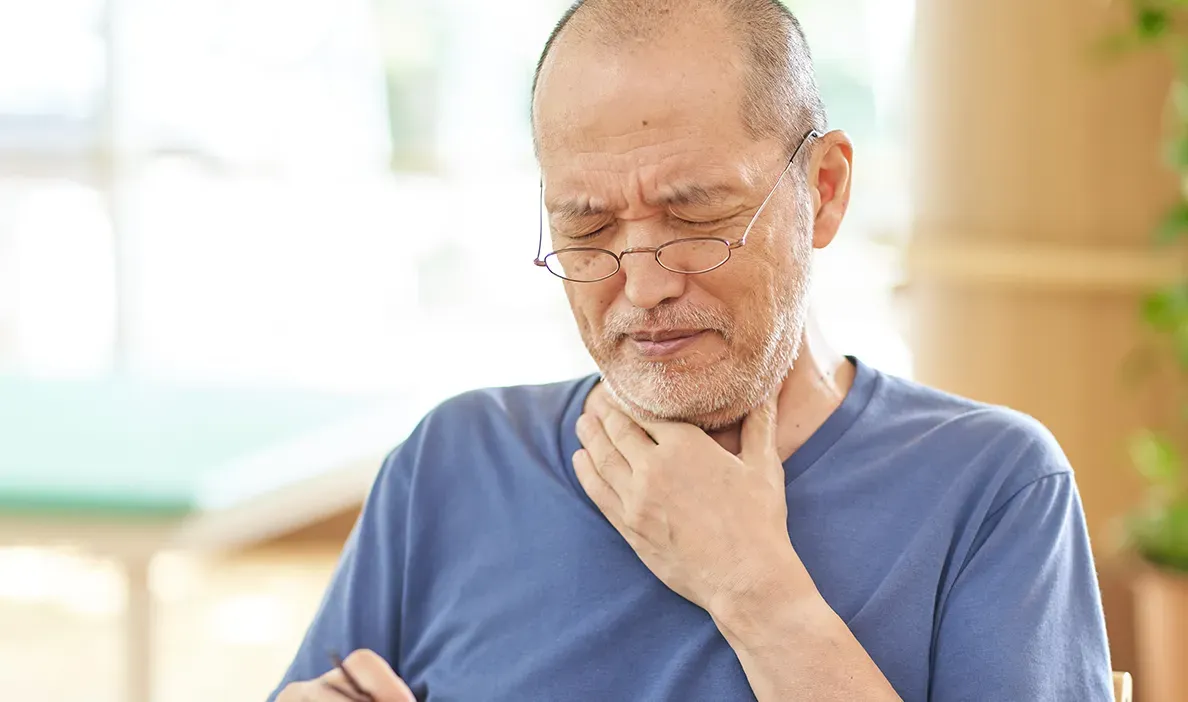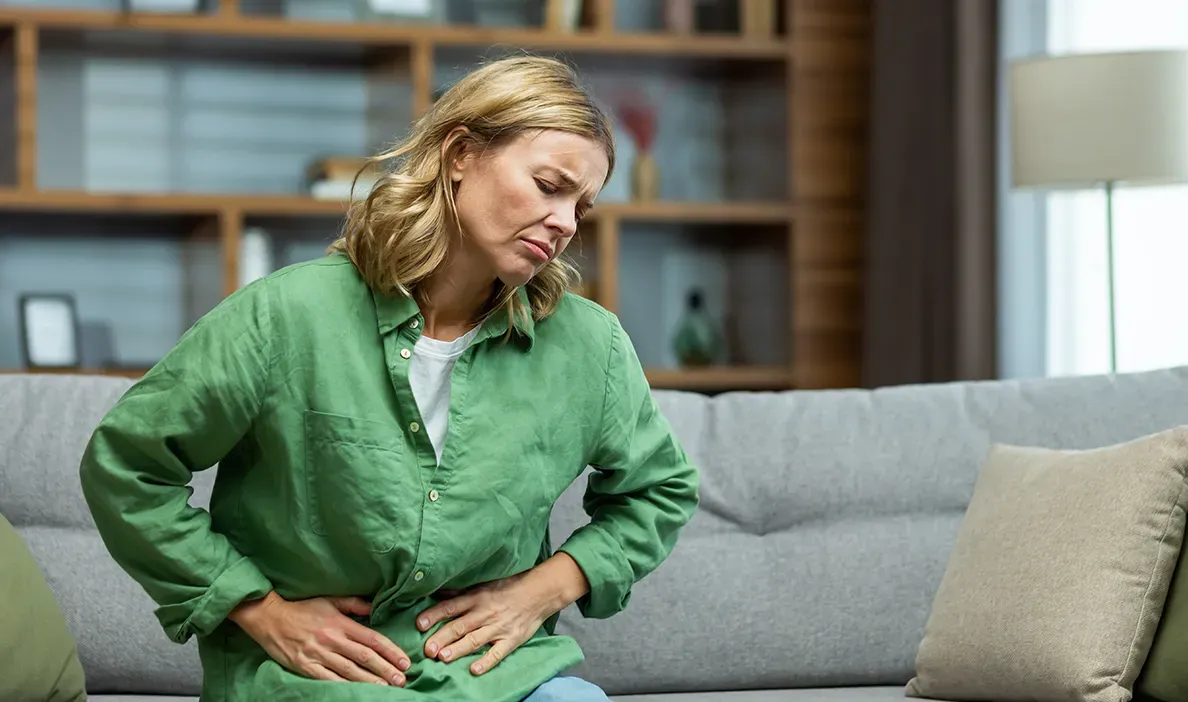Having cancer, or having treatment for cancer, can sometimes cause you to have some problems with your stomach and digestion.1
We’ve put together some tips to help you manage symptoms like feeling sick, constipation or diarrhoea.
Nausea (feeling sick) and vomiting (being sick)
Nausea and vomiting are, unfortunately, both common side effects of many cancer treatments.1
Having an empty stomach can make nausea worse, so try to eat little and often, even if you don’t feel like it. Eat simple, plain foods like plain biscuits, crackers or toast to keep your energy levels high without making your stomach work too hard.2
In severe cases, your doctor, nurse or pharmacist may be able to prescribe you anti-sickness drugs to help prevent or control sickness.3
Top tip:
Eat slowly and stay upright for 1 hour after eating.2
Loss of appetite
Lots of people who are living with cancer experience a loss of appetite. This can be a frustrating and upsetting side effect to experience.1
If you don’t have an appetite, it’s important that you eat the foods that you feel like eating, even if that’s puddings and desserts. Foods with lots of fat are a good source of calories. Try to eat high-protein foods like meat, fish, dairy and beans throughout the day.4
Top tip:
Ask friends or relatives to prepare and store small portions of your favourite meals for you.2
Constipation
Constipation means it’s difficult for you to go for a poo. It can make you feel full and uncomfortable.1
Drinking lots of water can be helpful.1 Staying hydrated helps keep things moving in your digestive system. Eating lots of fresh fruits and vegetables can also make a big difference1 because they’re full of fibre, which helps things pass more easily.4
Tell your healthcare team if you think you are constipated. They may be able to give you mild laxatives to help.1
Top tip:
Staying hydrated and eating lots of fruits and vegetables can help your constipation.1
Diarrhoea
Having diarrhoea is uncomfortable and it can take a lot out of you. It often makes you feel worn out, tired, and low on energy. Your doctor may be able to give you some anti-diarrhoea drugs to help.1
It’s important to drink lots of water while having diarrhoea. This will keep you hydrated and help to replace any fluid you lose.1
Top tip:
Eat small amounts at regular intervals and try to limit any foods you notice are upsetting your stomach.4
These tips may help you to cope with any digestion issues. Remember to tell your healthcare team if you are experiencing any of these side effects, or if things seem to be getting worse.
References
- Cancer Research UK. Digestion problems. Available at: https://www.cancerresearchuk.org/about-cancer/coping/physically/diet-problems/types/digestion-problems [Accessed June 2025].
- Milton Keynes University Hospital. Are you feeling sick? Available at: https://www.mkuh.nhs.uk/patient-information-leaflet/are-you-feeling-sick [Accessed June 2025].
- Macmillan. Nausea and vomiting. Available at: https://www.macmillan.org.uk/cancer-information-and-support/impacts-of-cancer/nausea-and-vomiting [Accessed June 2025].
- Cancer Research UK. Tips for diet problems. Available at: https://www.cancerresearchuk.org/about-cancer/coping/physically/diet-problems/managing/tips-for-diet-problems [Accessed June 2025].






